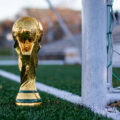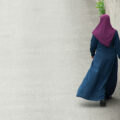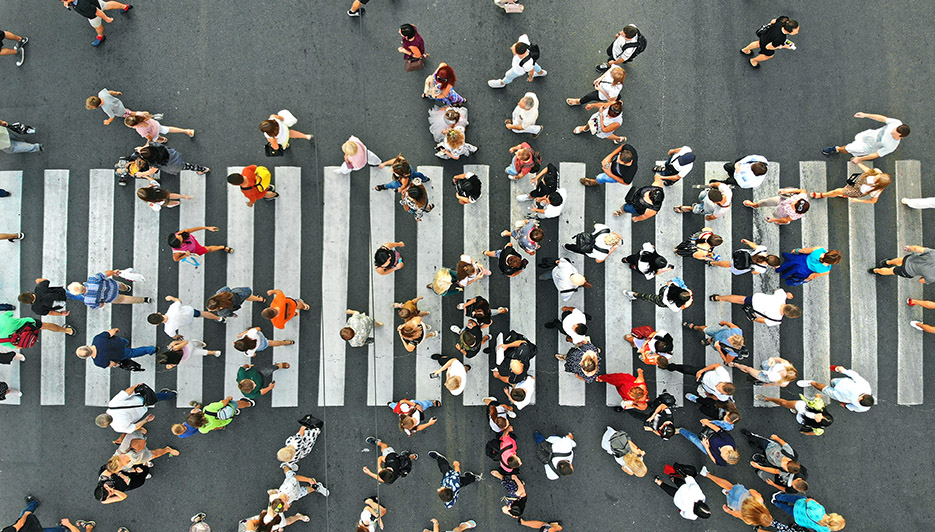Fasting and football – Ramadan in Europe’s favourite sport
Fasting and football – Ramadan in Europe’s favourite sport
Fasting for Ramadan creates a dilemma for Muslim football players, but also an opportunity to promote religious diversity to fans around the globe.
On April 6 2022, in the 65th minute of the German Bundesliga football match between Mainz and Augsburg, the referee paused the match so that Frenchman Moussa Niakhate could take on fluids. As a practising Muslim observing the holy month of Ramadan, the break allowed Niakhate to drink for the first time since sunrise that day.[1] The agreement of both teams, referee, and the German league to facilitate this followed on from a similar decision to allow Leicester player Wesley Fofana to do the same in an English Premier League match in April 2021.[2]
The introduction of these allowances is a step that has social and cultural ramifications that can extend far beyond football itself. In fact, whilst the relationship between sports and religion may not often be a topic of focus, this article will seek to demonstrate that sport can be an important tool in creating greater awareness, tolerance, and harmony in Europe’s multicultural future.
Celebrating Ramadan in spring
Fasting forms a key part of the annual celebration of Ramadan. In line with Islamic traditions, all adults and children who have passed puberty, barring certain exceptions, must refrain from eating or drinking between sunrise and sunset.
Importantly, the timing of Ramadan changes each year, being based on the Lunar calendar. Whilst for Muslims living closer to the equator this does not have such major consequences, for Muslims living in Europe, where daylight hours change dramatically through the year, the month of the celebration is much more significant.[3]
In the last few years, Ramadan has taken place in late spring. This has meant that the European football season, which ends in late May, has coincided with this period of fasting. In particular, evening matches that begin before sunset have posed a particular challenge for Muslim players who have to decide between breaking their fast or playing the match without having eaten or drank since sunrise that day. [4]
Fasting and physicality
The fact that Ramadan has overlapped with the end of the football season has created a dilemma both for Muslim players and for the clubs they play for.
A 2007 study of Algerian football teams showed that following the month of Ramadan, there was a reduction in the physical capabilities of the players, presumably due to the change to their otherwise finely-tuned diets. As a result of fears about a fall in sporting performance, the question of observing Ramadan has led to a complex set of dilemmas.[5]
In 2019, the fitness coach of Dutch team Ajax publicly commented that he believed it would be “irresponsible” for players to strictly observe Ramadan at such an important point in their campaign.[6] Meanwhile, in 2022, with the French team Saint Etienne facing relegation, the team’s manager made a similar point. Media reports stated that Pascal Dubraz asked his players, two-thirds of which are Muslim, not to fast in order to better be able to help keep the team in Ligue 1.[7]
Yet, whilst these examples seem to suggest that players’ abilities are weakened due to Ramadan, this may not always be true. For example, Real Madrid striker Karim Benzema scored a hat-trick against Chelsea having only broken his fast 13 minutes before kick-off.[8]
Positive laicism and role models: Liverpool Football Club
It is therefore clear that the effects of fasting on individual players can vary. However, an important factor to consider is the attitude of the club and manager for whom they play.
An article on the British website Twist Islamophobia, which as its name suggests is dedicated to fighting anti-Muslim discrimination, has discussed the example of Liverpool football club as being a role model for tolerance and encouragement of the practice of religious traditions. The article, written by Alberto Casani, credits the Liverpool manager Jurgen Klopp for maintaining a “multiculturalist stance” by encouraging players to openly express their religion and practices.[9]
As star striker Sadio Mane has recently publicly commented, during Ramadan, Klopp agreed to move the timing of training sessions to the morning to help players who were fasting.[10] He has also asked the team to enter the locker room a couple of minutes earlier to allow time for the Muslims players to be able to perform their absolutions (cleaning their bodies in accordance with their faith).[11]
Casani says that the approach taken by Liverpool has been one of ‘positive laicism’, an academic term for describing the decision to encourage equality among citizens by promoting religious differences, rather than by forbidding these differences from the public space. In this sense, Liverpool acts as an important model for encouraging and celebrating religious differences rather than trying to eliminate or hide them. [12]
In addition, Liverpool has also come to be an important representative for many Muslims across the world due to the fact that two of their star players, Sadio Mane from Senegal and Mohammad Salah from Egypt, are Muslims. Casani describes the so-called ‘Salah effect’, which he suggests has helped counter negative stereotypes of Islam with Salah serving as a role model for a positive understanding of the faith. Both Salah and Mane perform the sujood (prostration prayer) after scoring goals, and Liverpool fans have often sung a song about Salah which contains the lyrics “If he scores another few, I’ll be Muslim too.”
Having positive role models who have been encouraged to express their faith is crucial in a period in which Islamophobia has been on the rise in Europe. Research carried out by academics working at Stanford University has shown that exposure to Muslim celebrities helps to contribute to a reduction in prejudice and greater normalisation of Islam.[13] Therefore, in this sense, Salah and Mane’s open celebration of their faith has the potential to reach far beyond solely the football pitch.
A global embrace of religious diversity
The increasing openness and understanding of European football teams and leagues towards the religious diversity of their players has the potential to greatly educate fans about practices that they might otherwise be unaware of. With the Premier League having 3.2 billion viewers around the globe in 2021, football has a unique role to play in helping to show the values of embracing and celebrating religious differences around the world.[14]
Interested in similar topics? Go to our Dashboard and get free updates.
Sources
[1] The referee halted play at sunset in an elite German soccer match so a Muslim player could break his Ramadan fast and take a drink
[2] Wesley Fofana Broke His Ramadan Fast During Leicester City’s Win Over Crystal Palace
[3] Faith and Football: Training for the World Cup During Ramadan
[4] Faith and Football: Training for the World Cup During Ramadan
[5] Faith and Football: Training for the World Cup During Ramadan
[6] Ajax duo warned Ramadan stance “irresponsible” before Tottenham Euro crunch – Mirror Online
[7] Ligue 1 Manager Reportedly Asks Muslim Players Not To Fast During Ramadan
[8] Karim Benzema Was Fasting All Day For Ramadan Before Chelsea Match, Then Scored A Sensational Hat-Trick
[9] Role modelling and multiculturalism: “the Salah effect” – Twist IslamophobiaTwist Islamophobia
[10] Liverpool striker describes club’s support for Muslim players during Ramadan | Arab News
[11] Role modelling and multiculturalism: “the Salah effect” – Twist IslamophobiaTwist Islamophobia
[12] Role modelling and multiculturalism: “the Salah effect” – Twist IslamophobiaTwist Islamophobia
[13] Role modelling and multiculturalism: “the Salah effect” – Twist IslamophobiaTwist Islamophobia
[14] Premier League dominates Bundesliga, Ligue 1, La Liga and Serie A, attracting 3.2 billion TV viewers | Daily Mail Online






